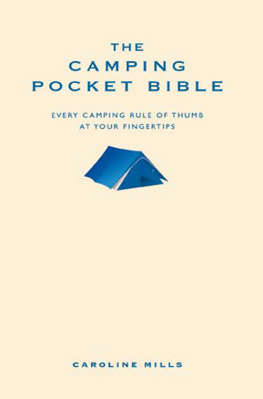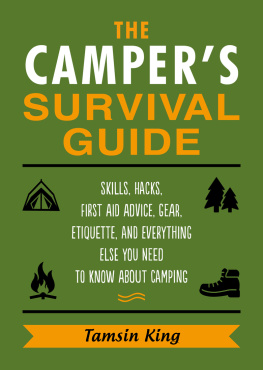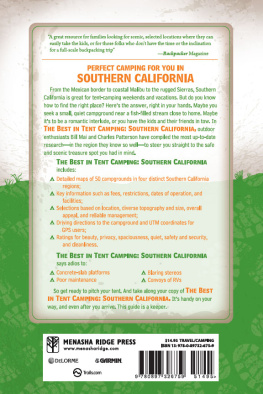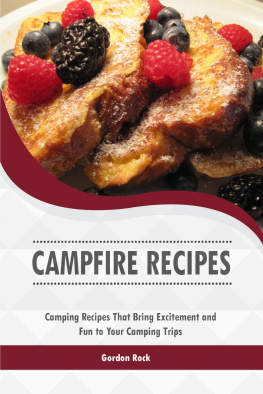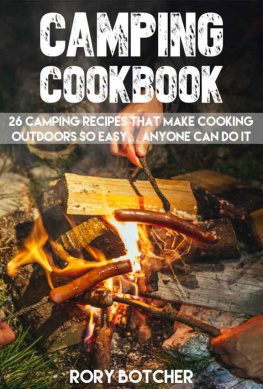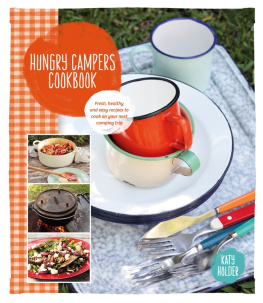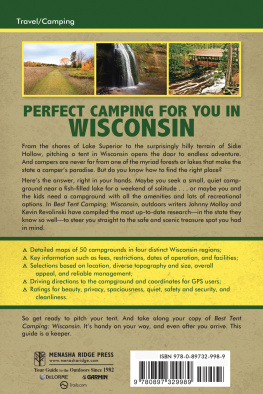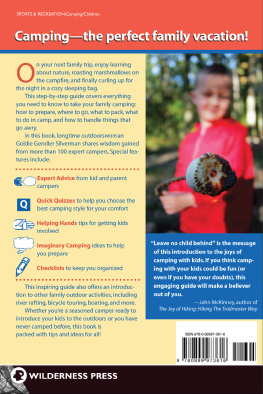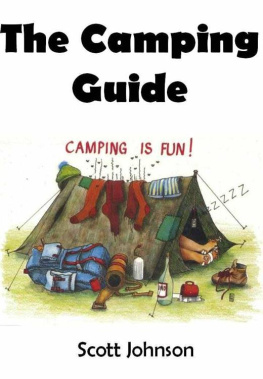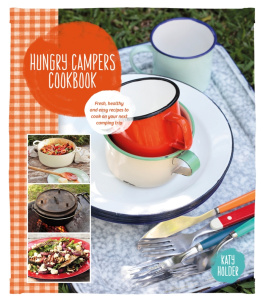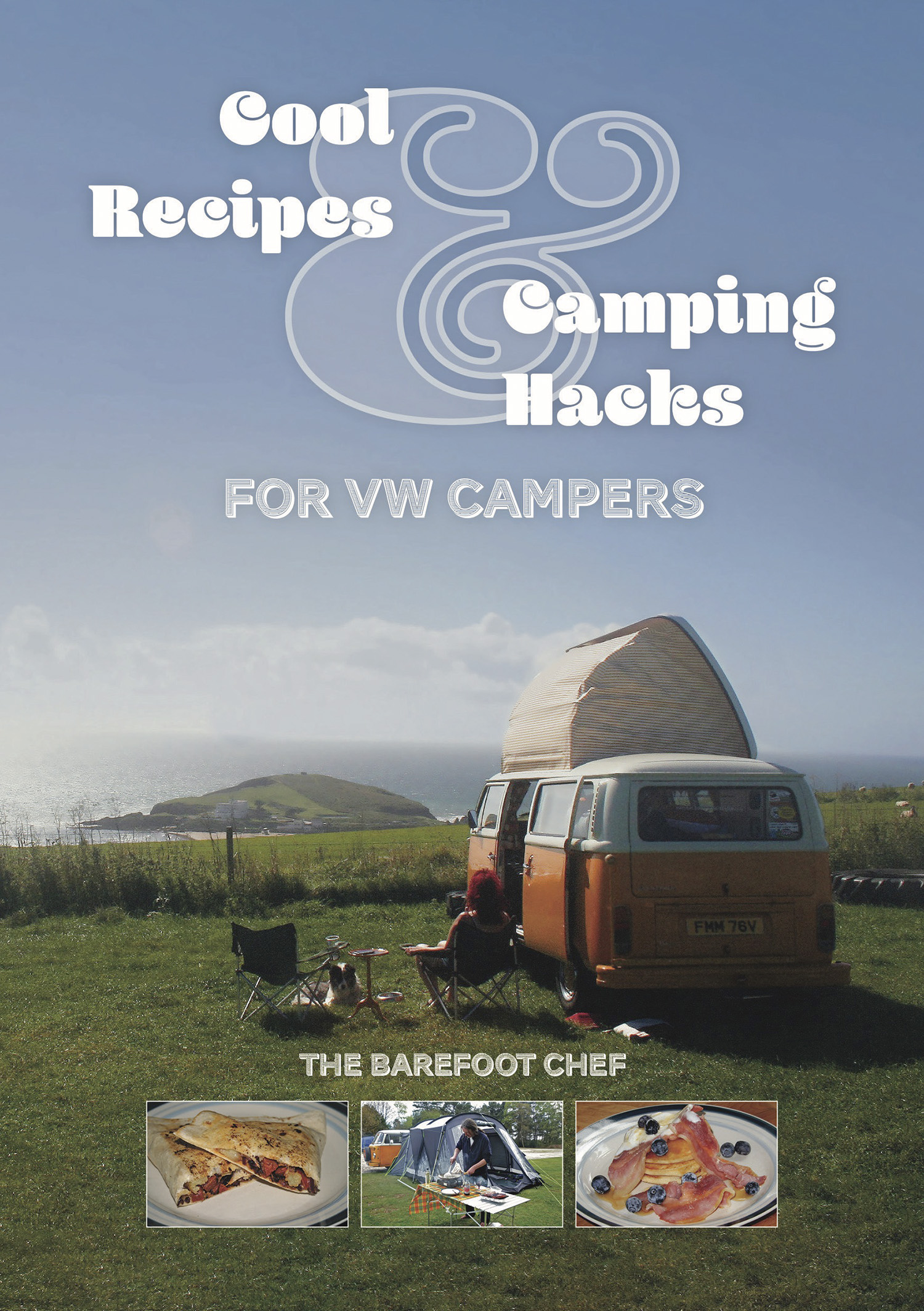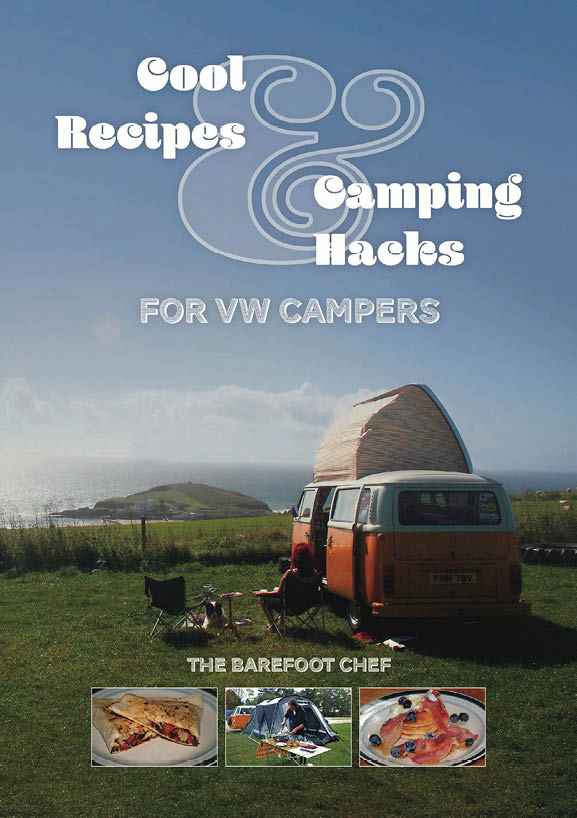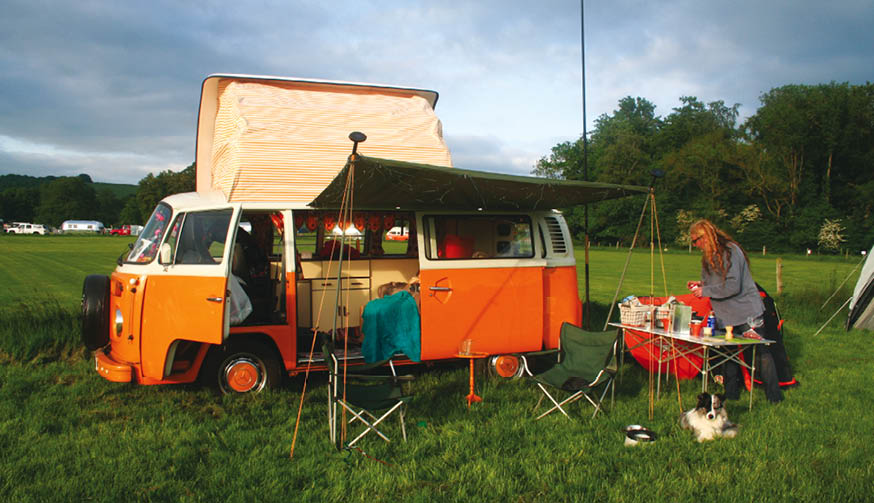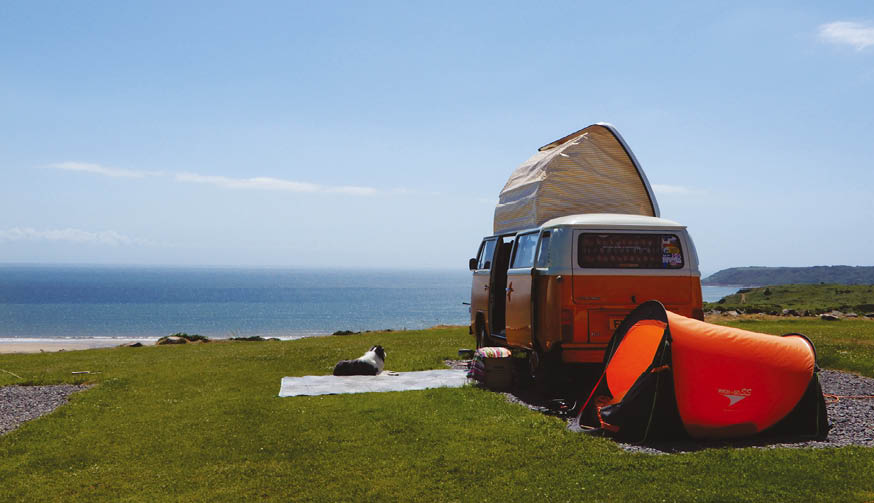Introduction
If you have a camper van, this is the book youve been waiting for: the laid-back persons guide to camping!
Included are more than 50 recipes that you really can cook from start to finish in the middle of a field somewhere, using only the standard dual hob and grill combo, or on a barbecue. Some of them are elegant and fragrant, and will have campers coming from all over the site to see what glorious feast you are preparing. Others are far more functional, and although they taste great and are quick and easy to prepare, they may not look very pretty.
A food stylist was occasionally consulted, but sadly their enthusiasm for placing poached eggs on top of things to add a splash of colour, led them to a sound kicking and an early exit from the project.
Much time was spent in arranging and re-arranging the recipes into the right order, but ultimately I couldnt decide which of the options was correct, so I gave up. Youll see that they are still completely disorganised, but it shouldnt be a problem as theres a comprehensive index at the back.
All the recipes are made to serve two people. Youll also see that some recipes are marked with a (V) to indicate that they are suitable for vegetarians, or (GF) to signal that theyre gluten-free. (GF*) means that the recipe could be made gluten-free simply by using an alternative stock cube! Not only did this book not have a stylist, it didnt have a nutritionist either but the vegetarian recipes dont have any meat in them, and the gluten-free ones dont make my fair, coeliac wife ill.
Along with the cookery, theres also lots of camping hints, tips, ideas and camping tales, all of which come from 25 years of working things out the hard way at festivals, VW shows, and a memorable mixture of holidays, both glorious and dismal. In terms of things to do and things to avoid, it doesnt matter what type of camper you drive: old VWs may look the part, but a vehicle less than 40-odd-years-old can generally be relied upon to perform slightly better.
The whole point of this book is that everything can be done in a field, in a camper van. You will find no instructions here that involve ovens, microwaves, or draining rice under a stream of boiling water. It is perfectly possible to make the vast majority of these recipes inside the bus on the original Fellows hob and grill, but space is very restricted, and there are an awful lot of people who dont want their expensive new upholstery to smell of onions for the next 20 years.
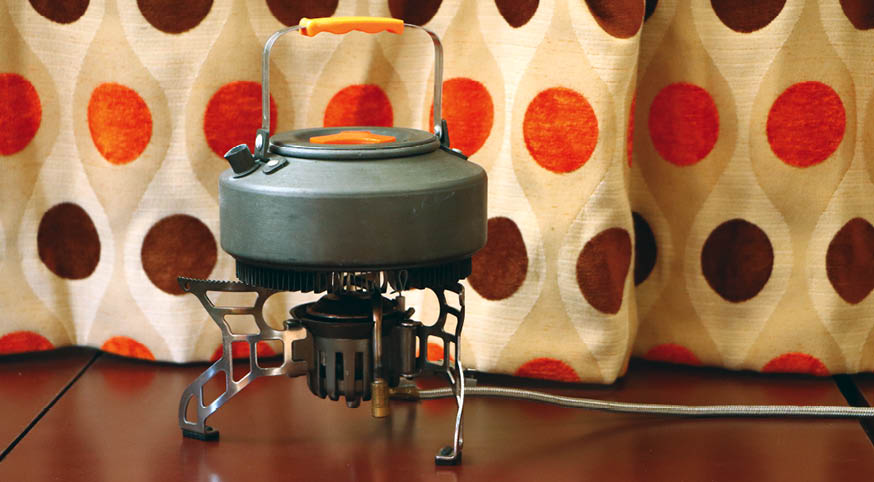
For that very reason, I spend a lot of time using a gas stove outside, on the table. Ive had a few of those cheap and cheerful portable butane gas stoves over the years the pressed-steel devices that come in a plastic case, and run on what look like aerosol cans. They are okay: theyre easy to use and pans sit on them with minimal risk of spillage, but for some reason they are incredibly slow you can be waiting ten minutes just for a kettle to boil. So, I replaced mine with a cheap Chinese copy of something exotic. Its featherweight and small enough to put in a large pocket. Youll see it in the photographs, but you cant tell just by looking how incredibly stable it has turned out to be. To go with it, I have a very small anodised aluminium kettle and an ultra-lightweight windbreak. The three things working in combination enable me to boil up water in about a minute-and-a-half.
It was interesting that it took a huge leap of faith for me to buy something so small: What happens if friends pop round? It can only hold about half a litre, and has very flimsy heat exchanger fins on the bottom, yet it has stood up well to over five years of constant camping abuse, and has inevitably been dropped on several occasions. Theres also a disposable barbecue tucked away in the camper van somewhere in case of emergency. If youve not used one, you might be surprised at how consistent they are.
About the author
The persona of the Barefoot Chef began life as nothing more than a fun photography project. From humble beginnings, it progressed to a series of comedy cookery videos on YouTube. Amazingly, the character captured someones imagination, and sporadic appearances on local radio led, in turn, to a regular column in a popular Volkswagen camper van magazine Volkswagen Camper & Commercial that lasted for more than a decade.
Dave Richards lives with his wife and dog, not in a small orange camper van at a variety of locations around the UK, but in a house in the Midlands.
Hanging on for just an hour before taking his tent down would have brightened up this chap's entire day.
Flexibility is the key
This is one of the pivotal chapters in this book. To impress upon you how important it is to be flexible, Ive paired it with the simplest recipe; one that you might otherwise ignore.
Its all well and good making plans: things to do at the festival, bands to see, stalls to visit, people to meet. Similarly, its great to research your holiday destination, so you can look forward to visiting the pier on Monday, walking over the dunes on Tuesday but the weather always conspires against you. And, when your base is a little tin van in the middle of a field, you have to accept that the weather will ultimately dictate exactly what you can and cant do. Its alright telling yourself that theres no such thing as bad weather just wrong clothes but there really is little point trying to fight it.
If youve planned a walk to the village in the next valley on Wednesday and you wake up to find it pouring down, be prepared to change plans. The village will still be there on Thursday. Instead, just walk a couple of hundred yards to the nearest pub* for a pie and a pint.



